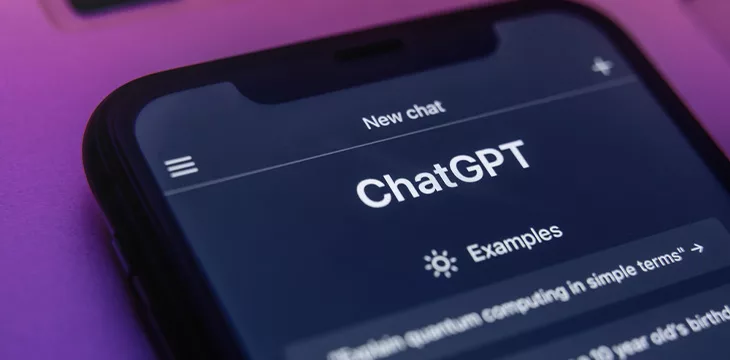
|
Getting your Trinity Audio player ready... |
OpenAI has managed to stave off competition from some of the world’s largest tech giants to remain the leader in artificial intelligence (AI). Its latest competition comes from a smaller company, Reka AI, which claims its AI model can compete with ChatGPT and Google’s Gemini (NASDAQ: GOOGL), beating them in some tasks, such as understanding video input. Meanwhile, OpenAI faces yet another lawsuit, this time in Austria.
‘Uncorrectable errors’
NOYB, an Austrian privacy rights activist group, announced this week that it had filed a complaint against OpenAI with the Austrian Data Protection Authority.
🚨 noyb has filed a complaint against the ChatGPT creator OpenAI
OpenAI openly admits that it is unable to correct false information about people on ChatGPT. The company cannot even say where the data comes from.
Read all about it here 👇https://t.co/gvn9CnGKOb
— noyb (@NOYBeu) April 29, 2024
The group alleges that the San Francisco, California-based company openly admits that it’s unable to correct information errors on its ChatGPT model. OpenAI has previously admitted that the chatbot responds to user queries “by predicting the next most likely words that might appear in response to each prompt.”
The activists say this proves that even OpenAI can’t guarantee that ChatGPT shows users factually correct information. While being used for menial tasks, this isn’t a big deal. However, when it concerns information about individuals, it’s ‘unacceptable.’
NOYB noted that Europe has demanded that personal data be accurate since 1995, a requirement currently enshrined in the GDPR. Additionally, the GDPR requires that all tech companies be able to show the personal data they hold on individuals and their sources.
“Making up false information is quite problematic in itself. But when it comes to false information about individuals, there can be serious consequences. It’s clear that companies are currently unable to make chatbots like ChatGPT comply with EU law, when processing data about individuals,” commented NOYB’s Maartje de Graaf.
To illustrate ChatGPT’s hallucination, NOYB asked the chatbot the date of birth of its founder, Max Schrems, and got three different responses, an experiment that has since been replicated.
NOYB has brought over 800 lawsuits against global giants, with its actions leading to over $1.86 billion in fines. Its victims include Google, Facebook (NASDAQ: META), Netflix (NASDAQ: NFLX), Spotify (NASDAQ: SPOT), Danske Bank (NASDAQ: DNSKF) and Instagram.
This isn’t the first time OpenAI has been sued in Europe. The company has also faced legal battles against Italian regulators, Poland’s data protection agency, and the German state of Schleswig-Holstein.
OpenAI signs agreement with Financial Times
Meanwhile, OpenAI has signed a licensing agreement with the Financial Times. Under the terms of the agreement, the AI firm will train its models on the British newspaper’s archived content.
The agreement also allows ChatGPT to respond to queries with summaries of FT articles, but it must include links to the newspaper’s website.
“Our partnership and ongoing dialogue with the FT (Financial Times) is about finding creative and productive ways for AI to empower news organisations and journalists, and enrich the ChatGPT experience with real-time, world-class journalism for millions of people around the world,” commented Brad Lightcap, the OpenAI COO.
The FT agreement is the company’s fifth with major global news organizations. In mid-last year, it signed a similar deal with the Associated Press and, in December, partnered with Axel Springer, the publisher behind Business Insider, Politico, and Bild.
Other partners include French newspaper Le Mode and Spanish media conglomerate PRISA.
The New York Times (NASDAQ: NYT) sticks out as one of the media giants that the AI powerhouse has been unable to win over. NYT sued OpenAI and its key ally Microsoft (NASDAQ: MSFT) last December for copyright infringement, alleging the unauthorized use of its materials to train GPT-3 and GPT-4.
ChatGPT has a new rival
On the tech side, ChatGPT is facing a new rival—Reka Core. The new multimodal language model was developed by Reka AI, a San Francisco-based startup founded by former executives at Google’s DeepMind, Meta, and China’s Baidu.
Reka AI claims its model competes with industry leaders, including ChatGPT and Gemini, and even edges them out in some aspects. One is understanding video input, which is reportedly better than that of industry leader Gemini.
The company further claims that Reka Core has a slight edge over GPT-4 in programming and Grade School Math 8K, a set of high-quality grade school math word problems.
Reka Core is free to use, with API access for developers costing them $10 for every one million tokens.
In order for artificial intelligence (AI) to work right within the law and thrive in the face of growing challenges, it needs to integrate an enterprise blockchain system that ensures data input quality and ownership—allowing it to keep data safe while also guaranteeing the immutability of data. Check out CoinGeek’s coverage on this emerging tech to learn more why Enterprise blockchain will be the backbone of AI.
Watch: How blockchain will keep AI honest

 11-22-2024
11-22-2024


